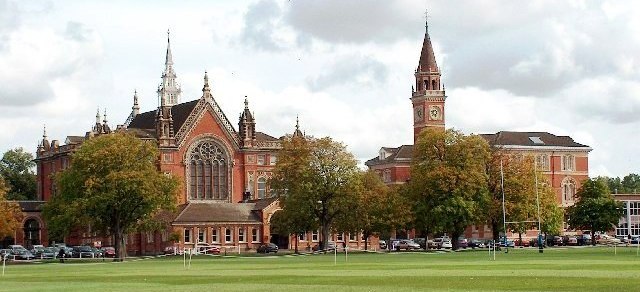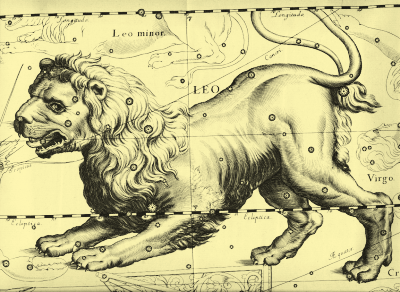|
Lennox F.C. (Scotland)
Lennox Football Club was a 19th-century football club based in Dumbarton, in Scotland. History The club was founded in 1873, and by 1876 had 57 members, 20 more than the local rivals Dumbarton had at the same stage; however, unlike Dumbarton, Lennox was not backed by a local industrial concern, club secretary Joseph Jenkins being a lawyer's clerk. The clubs met in Lennox' first Scottish Cup tie in 1875–76 and Dumbarton won 1–0 in a replay, thanks to a goal in the last five minutes from a Galbraith shot; the original tie at Levengrove had ended 2–2, Lennox losing a two-goal lead in the final 15 minutes. Lennox' second entry the next season was its most successful, and the club reached the quarter-finals, which, given the uneven nature of the regional early rounds, was made up of 6 clubs. The club gained revenge over Dumbarton in the third round, despite the Sons disputing the Lennox winner, and, by the time it went to Edinburgh Swifts in the fourth, had only conceded 2 ... [...More Info...] [...Related Items...] OR: [Wikipedia] [Google] [Baidu] |
Dulwich F
Dulwich (; ) is an area in south London, England. The settlement is mostly in the London Borough of Southwark, with parts in the London Borough of Lambeth, and consists of Dulwich Village, East Dulwich, West Dulwich, and the Southwark half of Herne Hill (which is often referred to as the North Dulwich triangle). Dulwich lies in a valley between the neighbouring districts of Camberwell (to the west), Crystal Palace, Denmark Hill, Forest Hill, Peckham, Sydenham Hill, and Tulse Hill. For the last four centuries Dulwich has been centred on the College of God's Gift, also known as the "Old College", which owned most of the land in the area today known as the Dulwich Estate. The College, founded with educational and charitable aims, established three large independent schools in the 19th century (Dulwich College, Alleyn's School and James Allen's Girls' School). In recent decades four large state secondary schools have opened in the area (The Charter School East Dulwich, The Charte ... [...More Info...] [...Related Items...] OR: [Wikipedia] [Google] [Baidu] |
Robert Paton (footballer)
Robert Paton (c. 1854 – 17 February 1905) was a Scottish footballer who played as a forward. Career Born in Bonhill, Paton played club football for Vale of Leven, and made two appearances for Scotland in 1879. He was a founder member of Vale of Leven and was part of the team that won the Scottish Cup in 1877, scoring the winning goal in the final's second replay. He was still with the club when they retained the trophy in 1878 and 1879, but he did not take part in either of those finals. According to historical records of Queen's Park, Paton was the first player ever to score against the Glasgow club in January 1875. History of the Queen's Park Football Club 1867 - 1917, Richard Robinson (1920), via Electric Scotland Personal life Some publ ...[...More Info...] [...Related Items...] OR: [Wikipedia] [Google] [Baidu] |
1882 Disestablishments In Scotland
Year 188 (CLXXXVIII) was a leap year starting on Monday of the Julian calendar. At the time, it was known in the Roman Empire as the Year of the Consulship of Fuscianus and Silanus (or, less frequently, year 941 ''Ab urbe condita''). The denomination 188 for this year has been used since the early medieval period, when the Anno Domini calendar era became the prevalent method in Europe for naming years. Events By place Roman Empire * Publius Helvius Pertinax becomes pro-consul of Africa from 188 to 189. Japan * Queen Himiko (or Shingi Waō) begins her reign in Japan (until 248). Births * April 4 – Caracalla (or Antoninus), Roman emperor (d. 217) * Lu Ji (or Gongji), Chinese official and politician (d. 219) * Sun Shao, Chinese general of the Eastern Wu state (d. 241) Deaths * March 17 – Julian, pope and patriarch of Alexandria * Fa Zhen (or Gaoqing), Chinese scholar (b. AD 100) * Lucius Antistius Burrus, Roman politician (executed) * Ma Xia ... [...More Info...] [...Related Items...] OR: [Wikipedia] [Google] [Baidu] |
1873 Establishments In Scotland
Events January–March * January 1 ** Japan adopts the Gregorian calendar. ** The California Penal Code goes into effect. * January 17 – American Indian Wars: Modoc War: First Battle of the Stronghold – Modoc Indians defeat the United States Army. * February 11 – The Spanish Cortes deposes King Amadeus I, and proclaims the First Spanish Republic. * February 12 ** Emilio Castelar, the former foreign minister, becomes prime minister of the new Spanish Republic. ** The Coinage Act of 1873 in the United States is signed into law by President Ulysses S. Grant; coming into effect on April 1, it ends bimetallism in the U.S., and places the country on the gold standard. * February 20 ** The University of California opens its first medical school in San Francisco. ** British naval officer John Moresby discovers the site of Port Moresby, and claims the land for Britain. * March 3 – Censorship: The United States Congress enacts the Comstock Law, making i ... [...More Info...] [...Related Items...] OR: [Wikipedia] [Google] [Baidu] |
Association Football Clubs Disestablished In 1882
Association may refer to: *Club (organization), an association of two or more people united by a common interest or goal *Trade association, an organization founded and funded by businesses that operate in a specific industry *Voluntary association, a body formed by individuals to accomplish a purpose, usually as volunteers Association in various fields of study *Association (archaeology), the close relationship between objects or contexts. *Association (astronomy), combined or co-added group of astronomical exposures *Association (chemistry) *Association (ecology), a type of ecological community *Genetic association, when one or more genotypes within a population co-occur *Association (object-oriented programming), defines a relationship between classes of objects *Association (psychology), a connection between two or more concepts in the mind or imagination *Association (statistics), a statistical relationship between two variables *File association, associates a file with a so ... [...More Info...] [...Related Items...] OR: [Wikipedia] [Google] [Baidu] |
Defunct Football Clubs In Scotland
Defunct (no longer in use or active) may refer to: * ''Defunct'' (video game), 2014 * Zombie process or defunct process, in Unix-like operating systems See also * * :Former entities * End-of-life product An end-of-life product (EOL product) is a product at the end of the product lifecycle which prevents users from receiving updates, indicating that the product is at the end of its useful life (from the vendor's point of view). At this stage, a ... * Obsolescence {{Disambiguation ... [...More Info...] [...Related Items...] OR: [Wikipedia] [Google] [Baidu] |
Helensburgh F
Helensburgh (; gd, Baile Eilidh) is an affluent coastal town on the north side of the Firth of Clyde in Scotland, situated at the mouth of the Gareloch. Historically in Dunbartonshire, it became part of Argyll and Bute following local government reorganisation in 1996. Geography and geology Helensburgh is northwest of Glasgow. The town faces south towards Greenock across the Firth of Clyde, which is approximately wide at this point. Ocean-going ships can call at Greenock, but the shore at Helensburgh is very shallow, although to the west of the town the Gareloch is deep. Helensburgh lies at the western mainland end of the Highland Boundary Fault. This means that the hills to the north of Helensburgh lie in the Highlands, whereas the land to the south of Helensburgh is in the Lowlands or Central Belt of Scotland. Consequently, there is a wide variety of landscape in the surrounding area – for example, Loch Lomond (part of Scotland's first National Park) is only over ... [...More Info...] [...Related Items...] OR: [Wikipedia] [Google] [Baidu] |
1880-81 Scottish Cup
Year 188 (CLXXXVIII) was a leap year starting on Monday of the Julian calendar. At the time, it was known in the Roman Empire as the Year of the Consulship of Fuscianus and Silanus (or, less frequently, year 941 ''Ab urbe condita''). The denomination 188 for this year has been used since the early medieval period, when the Anno Domini calendar era became the prevalent method in Europe for naming years. Events By place Roman Empire * Publius Helvius Pertinax becomes pro-consul of Africa from 188 to 189. Japan * Queen Himiko (or Shingi Waō) begins her reign in Japan (until 248). Births * April 4 – Caracalla (or Antoninus), Roman emperor (d. 217) * Lu Ji (or Gongji), Chinese official and politician (d. 219) * Sun Shao, Chinese general of the Eastern Wu state (d. 241) Deaths * March 17 – Julian, pope and patriarch of Alexandria * Fa Zhen (or Gaoqing), Chinese scholar (b. AD 100) * Lucius Antistius Burrus, Roman politician (executed) * Ma Xiang, Chines ... [...More Info...] [...Related Items...] OR: [Wikipedia] [Google] [Baidu] |
10th Dumbartonshire Rifle Volunteers F
1 (one, unit, unity) is a number representing a single or the only entity. 1 is also a numerical digit and represents a single unit of counting or measurement. For example, a line segment of ''unit length'' is a line segment of length 1. In conventions of sign where zero is considered neither positive nor negative, 1 is the first and smallest positive integer. It is also sometimes considered the first of the infinite sequence of natural numbers, followed by 2, although by other definitions 1 is the second natural number, following 0. The fundamental mathematical property of 1 is to be a multiplicative identity, meaning that any number multiplied by 1 equals the same number. Most if not all properties of 1 can be deduced from this. In advanced mathematics, a multiplicative identity is often denoted 1, even if it is not a number. 1 is by convention not considered a prime number; this was not universally accepted until the mid-20th century. Additionally, 1 is the ... [...More Info...] [...Related Items...] OR: [Wikipedia] [Google] [Baidu] |
Star Of Leven F
A star is an astronomical object comprising a luminous spheroid of plasma held together by its gravity. The nearest star to Earth is the Sun. Many other stars are visible to the naked eye at night, but their immense distances from Earth make them appear as fixed points of light. The most prominent stars have been categorised into constellations and asterisms, and many of the brightest stars have proper names. Astronomers have assembled star catalogues that identify the known stars and provide standardized stellar designations. The observable universe contains an estimated to stars. Only about 4,000 of these stars are visible to the naked eye, all within the Milky Way galaxy. A star's life begins with the gravitational collapse of a gaseous nebula of material composed primarily of hydrogen, along with helium and trace amounts of heavier elements. Its total mass is the main factor determining its evolution and eventual fate. A star shines for most of its active ... [...More Info...] [...Related Items...] OR: [Wikipedia] [Google] [Baidu] |


%2C_Helensburgh.jpg)

